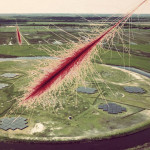RUG research: ‘light products make you eat more’
Light versions of sweets, soft drinks or crisps cause overconsumption in the long term. People do not get slimmer from eating them, but rather fatter, says RUG marketing professor Peter Verhoef. His research will be published in the International Journal of Research in Marketing.
The fact that consumers eat more crisps when they switch to the light variant was already known. But according to Verhoef, it now appears that they continue with this behaviour a year after they have switched. Moreover, they eat the light version and resume eating the ‘normal’ version of their snacks again.
Producers of crisps, sweets and soft drinks gladly adapt their light products in keeping with the government’s battle against obesity, according to Verhoef. But he warns that the government should be careful with its promotion of light products. Consumers who switch to light buy an average of 13 per cent more calories the year after the switch.
More, more, more
‘The health claim that there are fewer calories per 100 grams in a product might be the case, but because more of the product is eaten, the claim works counter-productively. People feel guilty when they eat something which will make them fat, but when they switch to light, it has been found that they immediately consume more. This then becomes routine, after a year of which they not only eat more of the light variant, but often also the ‘normal’ variant again’, says Verhoef.
The researchers base their results on the data from market researcher GfK, whose records come from randomly sampling of purchases made by households. Among those, the researchers chose the households who had just switched to light crisps. They counted the number of calories consumed which accompanied the switch. According to Verhoef, the results are also applicable to other Western European countries and the United States.
‘Light is not bad’, says the researcher. ‘But we have to be conscious of the psychological effect of the claim. If we really want those who are overweight to eat fewer calories, we have to inform them better.’






